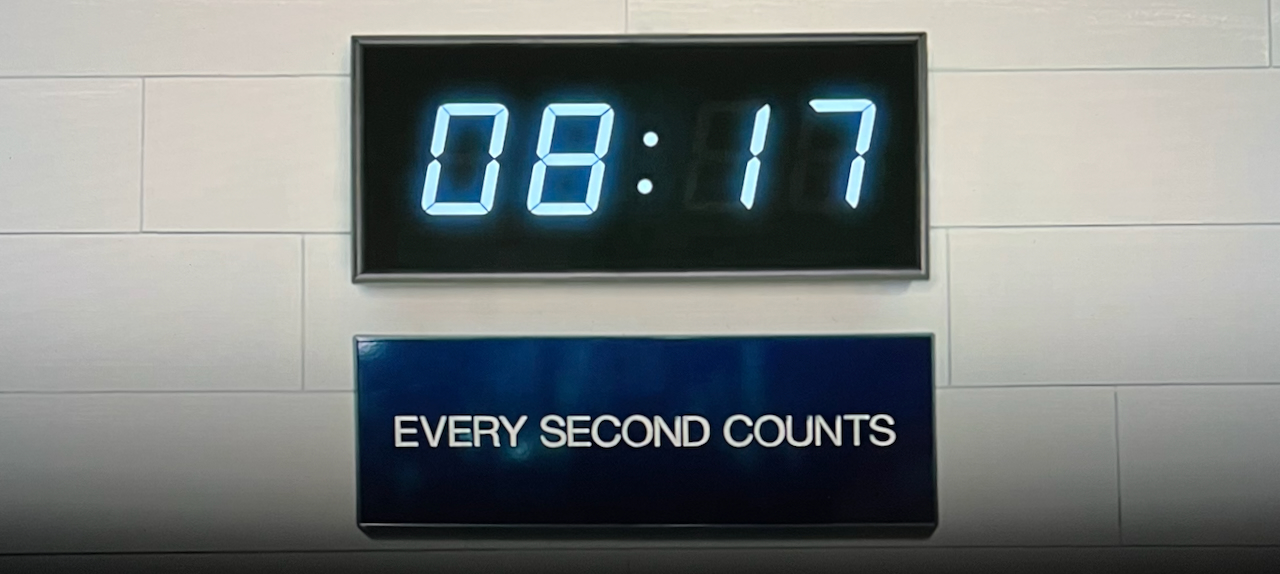
A dramatic message from The Bear, on Hulu
My younger son likes to cook and has an interest in those who work in kitchens for a living. He loved the Marco Pierre White memoir Devil in the Kitchen, and the movie Burnt, said to be inspired in part by White. Recently he turned me on to the Hulu series The Bear, about a young Michelin-starred chef who returns to Chicago to take on his family’s beef-sandwich shop after the suicide of his older, addicted brother. The second season of 10 episodes dropped a couple of weeks ago, so I was able to binge the now-satisfying mass of the series to date.
The titular bear becomes the name of a new restaurant that chef Carmen (Jeremy Allen White) founds on the ruins of the sandwich shop, dragging his problematic family and friends with him toward possible success. But “Bear” is also what his family, the Berzattos, call him and sometimes each other. As a way of dramatizing what that means to the drama, the series opens with a nightmare Carmen has of opening a cage with a bear in it (on a bridge over the Chicago River) and being attacked viciously.
It also illustrates an unevenness that is often present in streaming series. While The Bear has been nominated for comedy awards, and Jeremy Allen White has won some of them, there is a dark streak of pain not easily reconciled to the comedy of situation and its quirky characters, even in the sense of “tragicomedy.” Carmen is shown, as the series progresses, to be suffering from something like Complex PTSD from the dynamics of his family, especially the relationship with his alcoholic, narcissistic mother (portrayed in a horrific-but-can’t-look-away performance by Jamie Lee Curtis).
As the pressures mount to rehab and re-open the restaurant, there is comedy, tension, and resolution as might be expected (no viewer could really believe the effort will fail), but on top of all that Carmen appears to be having a psychotic break that does not match the tone of much of the rest of the series, or even what he has been shown to be. To give its intention full credit, this sets up a cliff hanger for a presumed and much-anticipated third season. To be less generous, it feels like the narrative struggles to bridge the impulses of a dramatic film and those of a TV series such as Chicago Hope.
Most of the characters in the foreground of the drama have arcs, which is good, though Carmen’s is not necessarily the biggest one—perhaps another justification in the writing for his sudden apparent breakdown. But compare, say, the filmic impulse of Wes Anderson’s recent puzzle, Asteroid City, with this streaming series. In the series, characters learn lessons by homilies and slogans to inevitably improve their lives. The lectures in The Bear are sometimes rousing—Oliver Platt tells Carmen, who is wavering in his dedication to the restaurant, “You wanna be the guy? Then be the fucking guy”—and the visual editing toward messages is often skillful.
When “Cousin” (Ebon Moss-Bachrach) gets news of his estranged wife’s intent to move on, for example, there are flash-cuts of the El blasting past, little white chocolate skulls in a bowl and the word “perseverance” on a white board in a kitchen where he knows at heart he cannot belong. Cousin is being broken in several ways, and though he has often been an unpleasant character, we might long for his redemption. But is that how things work? Maybe, sometimes? No?
Cousin’s may be the biggest arc with the most detail and biggest emotion in the series, though I am not sure the series knows that. More attention should have been paid to the primary female (Ayo Edebiri) and secondary female (Liza Colón-Zayas) characters, who would have been more dramatically interesting in a less “dramatic” fashion than Cousin. It is just that Cousin is a foul-mouthed, violent loser. If he can be redeemed or find purpose, the writers seem to feel, then the series has accomplished something. And in this series, Cousin may yet pull it off. He gazes at a sign on a kitchen wall (“Every second counts”) that rises to metaphor, discovers in himself an improbable and extremely impressive talent that saves everyone’s bacon, and goes on to offer a homily about Siddhartha (“Listen better”) to restaurant staff. (That advice might be an ingredient for better art.)
In the desert of streaming services, The Bear is worth a watch, though its messages, common to the chef genre from Bourdain to Ramsay, have to be taken with a grain of salt.
